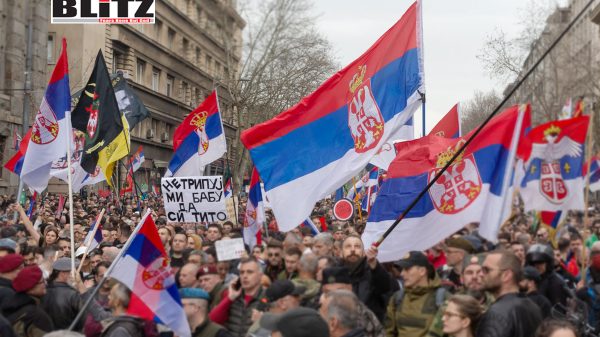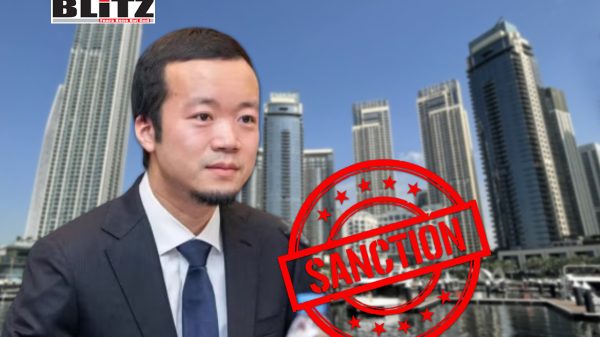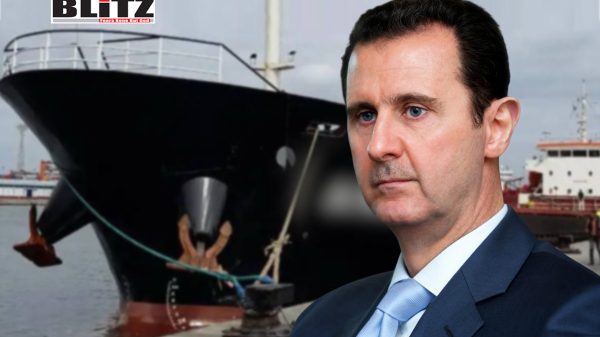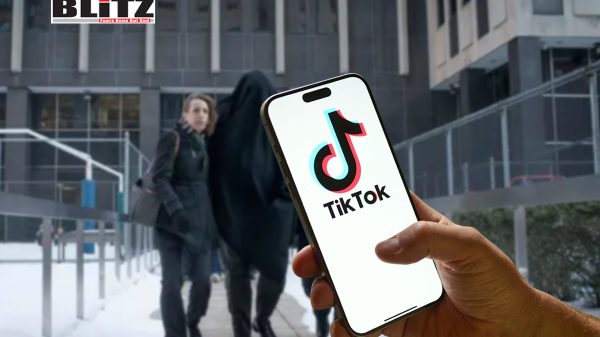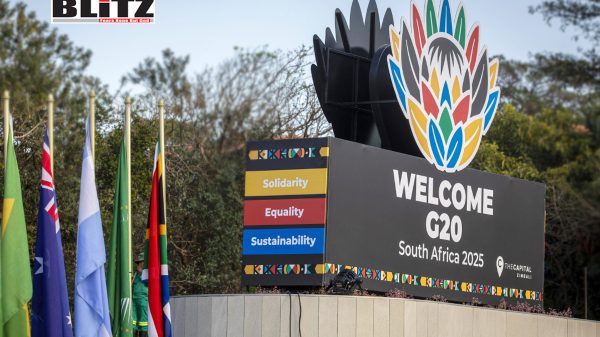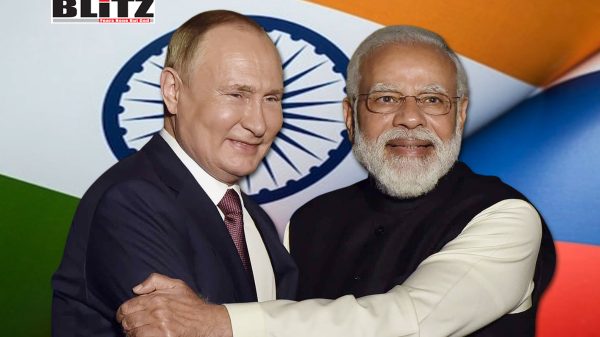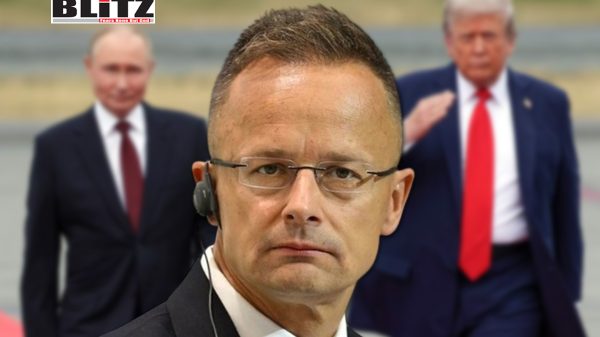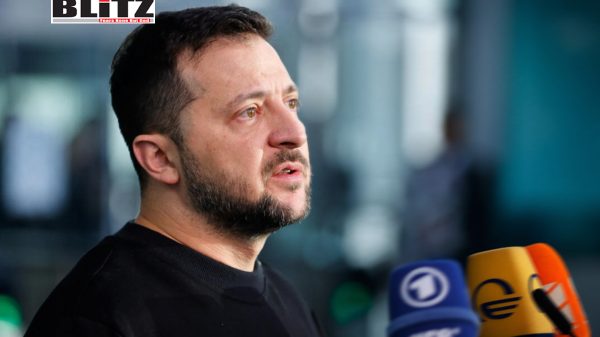US destroys drug-smuggling submarine in Caribbean as tensions with Venezuela escalate
- Update Time : Sunday, October 19, 2025
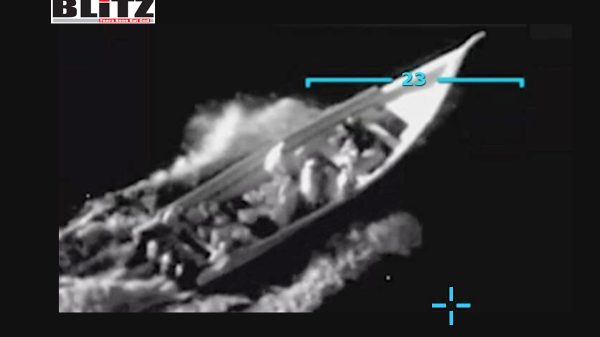
In a dramatic announcement that has sent ripples across the Caribbean and Latin America, President Donald Trump confirmed on October 17 that the US military destroyed a submarine allegedly smuggling drugs near Venezuelan waters. The strike marks the latest in a series of increasingly aggressive American operations against what Washington has branded as “narcoterrorist” targets.
“We attacked a submarine, and that was a drug-carrying submarine built specifically for the transportation of massive amounts of drugs,” Trump told reporters at the White House. “Just so you understand, this was not an innocent group of people,” he added, suggesting that the crew had ties to criminal cartels.
The attack follows at least five similar strikes against surface vessels since September – all reportedly linked to Venezuelan-based cartels. For the first time, however, survivors have been reported among the crew, marking a new and controversial turn in a campaign that critics say blurs the line between counter-narcotics policing and acts of war.
The US Navy reportedly located and targeted the drug-smuggling submarine on October 16, acting on intelligence suggesting that it was carrying large quantities of narcotics intended for Central American and US markets. A US official, speaking anonymously to Reuters, confirmed that several individuals had survived the strike and were detained aboard a US warship. Their identities, conditions, and legal status remain undisclosed.
The Pentagon has not issued an official statement about the incident or clarified whether medical aid was provided to the survivors. This silence has intensified scrutiny over how the US military is conducting these operations – and whether it is adhering to international humanitarian standards that mandate assistance to wounded or shipwrecked individuals at sea.
Prior to this latest operation, US forces had destroyed at least five suspected drug boats in the region, reportedly killing more than two dozen crew members. These actions form part of a broader escalation of military activity in the Caribbean, which now includes the deployment of guided missile destroyers, F-35 fighter jets, a nuclear-powered submarine, and some 6,500 troops.
The Trump administration claims the buildup is part of a larger campaign to “disrupt and destroy narcoterrorist networks” allegedly linked to the Venezuelan government. Yet this narrative has been met with skepticism from both domestic and international observers, who see it as an extension of Washington’s long-standing efforts to pressure and isolate President Nicolás Maduro’s government.
The language used by the Trump administration – particularly the branding of drug smugglers as “narcoterrorists” – has raised significant legal and ethical concerns. By framing drug interdiction as a form of warfare, the White House appears to be asserting that such operations fall under the laws of armed conflict, allowing for lethal force without the due process normally required in law enforcement.
“The United States is effectively conducting undeclared warfare in foreign territorial waters,” warned a senior legal scholar at Georgetown University. “This risks setting a precedent where counter-narcotics operations are used to justify military strikes far beyond the nation’s borders.”
Video footage from earlier US operations showed vessels being obliterated in precision strikes, leaving no survivors. The October 16 incident, which produced live detainees, could therefore become a test case for how such individuals are treated – whether as prisoners of war, criminal suspects, or something in between.
Human rights advocates have already voiced alarm. “The US cannot simultaneously claim to uphold international law and engage in extrajudicial killings on the high seas,” said a senior researcher with Human Rights Watch. “The treatment of survivors must be transparent, humane, and subject to international oversight.”
The Venezuelan government has fiercely condemned the strikes, calling them illegal violations of its sovereignty. In a letter to the United Nations Security Council, Venezuelan Ambassador Samuel Moncada urged the UN to investigate and issue a declaration reaffirming Venezuela’s territorial rights.
“Under the guise of counter-narcotics operations, the United States has launched acts of aggression that threaten regional peace and security,” Moncada wrote in the letter, which was obtained by Reuters.
Caracas maintains that Washington’s true goal is regime change. The tension escalated further after President Trump confirmed that he had authorized the Central Intelligence Agency to conduct covert operations inside Venezuela. The revelation fueled suspicions that the submarine attack and other maritime operations are part of a broader destabilization campaign aimed at unseating President Maduro.
“The US is not fighting drugs – it is fighting Venezuela,” said Venezuelan Foreign Minister Yván Gil during a televised address. “They are testing our defenses and violating our sovereignty under the pretext of combating crime.”
The Pentagon’s recent restructuring of command responsibilities in the Caribbean has only added to the uncertainty. Traditionally, the Miami-based US Southern Command (SOUTHCOM) oversees military operations in Latin America. But in a surprising move, the Pentagon announced earlier this month that the counter-narcotics mission would now fall under a new task force led by the II Marine Expeditionary Force – an elite combat unit based at Camp Lejeune, North Carolina, known for its capacity to conduct rapid overseas assaults.
Defense analysts say the reassignment signals a shift toward a more aggressive posture. “Moving leadership from a regional coordination command to a direct combat unit shows intent – this is not just about intercepting smugglers; it’s about power projection,” said one former Pentagon official.
Compounding the turmoil, Admiral Alvin Holsey, commander of SOUTHCOM, announced his resignation two years ahead of schedule. His departure has sparked speculation of internal dissent within the Pentagon over the legality and risks of the Caribbean campaign.
Senator Jack Reed, the top Democrat on the Senate Armed Services Committee, called Holsey’s resignation “deeply troubling” and urged greater congressional oversight. “This administration is ignoring the hard-earned lessons of past military engagements and the counsel of seasoned commanders,” Reed said in a statement.
The submarine strike and the capture of survivors mark a turning point in what has been an opaque and deadly operation. Calls are growing in Washington and abroad for greater transparency about the scope, rules of engagement, and civilian impact of the campaign.
Diplomats warn that continued US strikes in or near Venezuelan territorial waters could provoke a wider confrontation. “Each of these attacks brings the region closer to a flashpoint,” said a Latin American affairs analyst based in Mexico City. “The Caribbean is not just a drug corridor anymore – it’s a theater of strategic confrontation.”
For now, the Pentagon remains tight-lipped, and the fate of the captured survivors is unknown. What began as an anti-smuggling mission now stands at the intersection of military escalation, international law, and geopolitics.
As Washington doubles down on its “war on narcoterrorism,” the world is left to wonder: is the United States enforcing justice on the high seas – or writing new rules for unilateral warfare?



